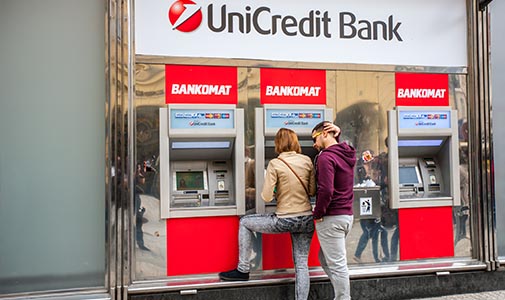Linda L. Says:
What is involved in establishing an overseas savings or checking account and what are the ramifications stateside?
 IL Global Diversification Expert Ted Baumann Says:
IL Global Diversification Expert Ted Baumann Says:
Normally, to open a bank account in a foreign country you must have an ongoing connection with that country, typically some form of property ownership or residence. (Ironically, the only country that does allow remote account opening is the United States!)
There are international bank account options even if you don’t qualify directly, but they come at a price. For example, HSBC offers two types of international bank accounts:
- An expat bank account: Some jurisdictions that allow this include the Channel Islands, Isle of Man, and Singapore. To qualify, you need to deposit 50,000 British pounds or the equivalent in a foreign currency, OR have a salary of 100,000 pounds or the equivalent, OR have an HSBC Premier Account in another country.
- An overseas account: HSBC can help you open an account in the following countries:
Argentina, Australia, Bahrain, Bangladesh, Bermuda, Canada, China, Egypt, Expat offshore (Jersey), France, Greece, Hong Kong SAR, India, Indonesia, Macau SAR, Malaysia, Malta, Mauritius, Mexico, New Zealand, Oman, Philippines, Qatar, Saudi Arabia, Singapore, Sri Lanka, Taiwan, Turkey, UAE, UK, USA, and Vietnam. Each country’s requirements are slightly different.
Another option is to create a trust or limited liability company in an offshore jurisdiction and attach a bank account to that. But like opening an account via HSBC or other international bank, this usually involves significant deposit requirements.
Assuming you manage to get an account open, the main implication is the Foreign Account Tax Compliance Act, or FATCA. FATCA requires any U.S. tax resident with financial assets abroad to report those assets to the IRS on form 8938, which you submit along with your 1040 tax form annually. If your foreign financial assets are below $50,000 ($100,000 for married couples filing jointly), you don’t need to do this, and in some cases the threshold may be higher—specifically if you also live in the country where you have financial assets.
There is also the Report of Financial Foreign Bank and Financial Accounts (FBAR), administered by the Treasury Department. You must fill out the FBAR form online if you hold more than $10,000 in a foreign financial account. This is separate from your tax filing.
The U.S. government is quite strict about foreign bank account reporting. If you have financial assets above the thresholds in a foreign bank, that bank WILL report that to the IRS. Of course, the U.S. can’t tell other countries what to do, but the U.S. government tells foreign banks that if they don’t cooperate, they will be shut out of the U.S. dollar transaction system.
Although this sounds scary, it’s not as bad as it sounds. I’ve had foreign bank accounts for 40 years, and every year I report on them as required. But because any income I earn outside the U.S. is non-taxable in the U.S. thanks to double-taxation agreements, I’ve never experienced any bureaucratic troubles.
Got a Question?
Send your thoughts to mailbag@internationalliving.com. We’ll post and respond to as many of your emails as we can right here in the e-letter.

